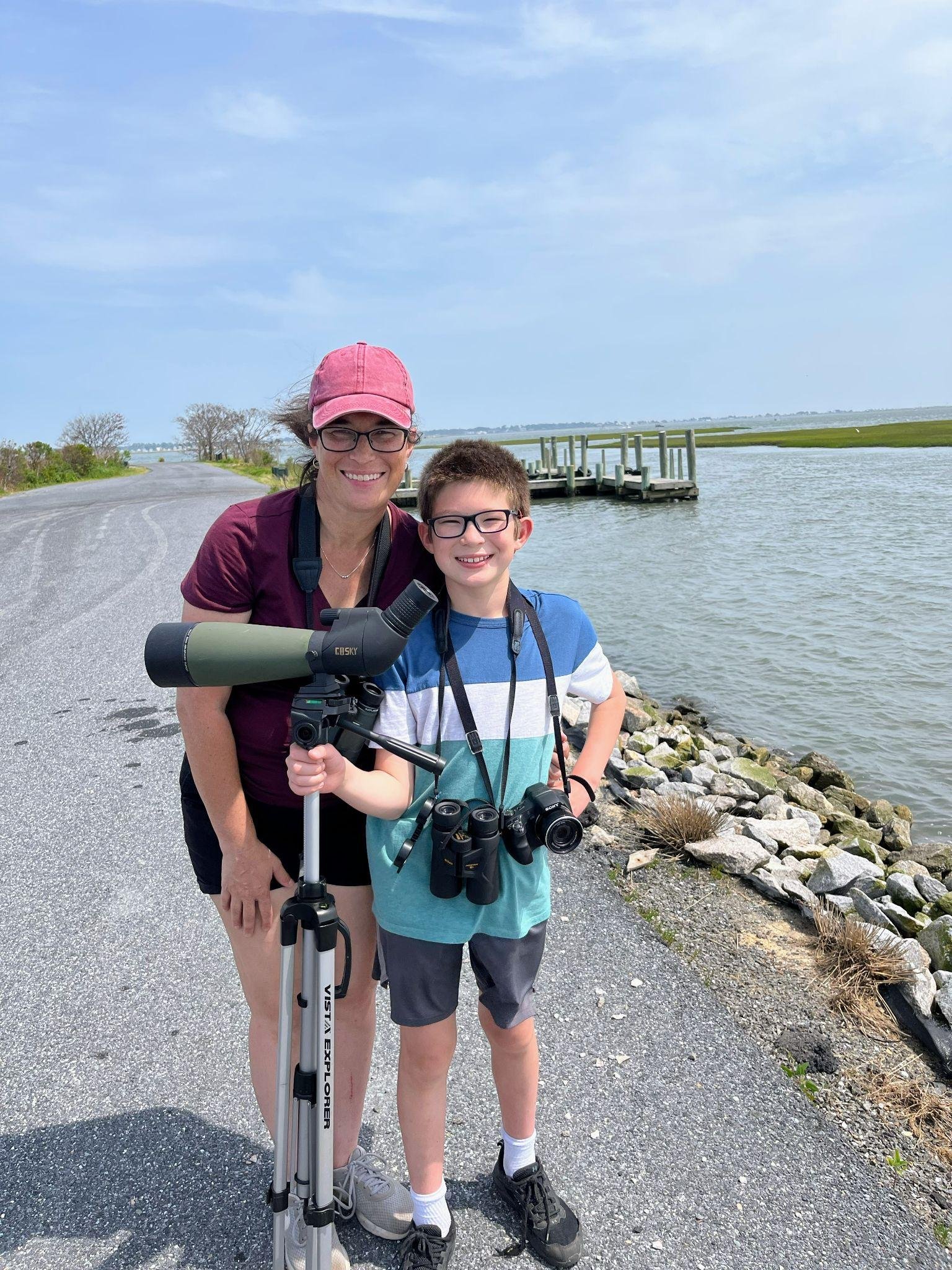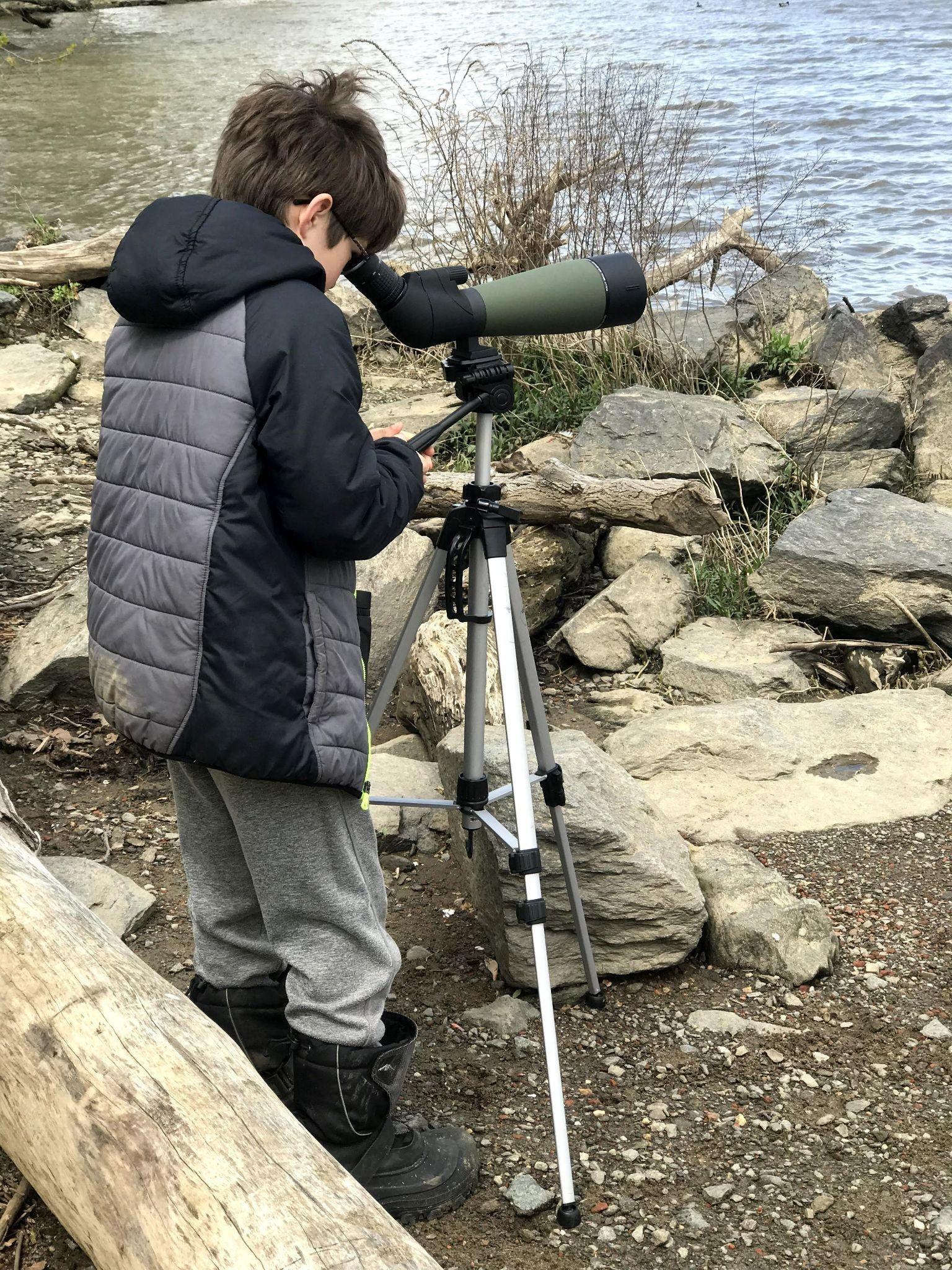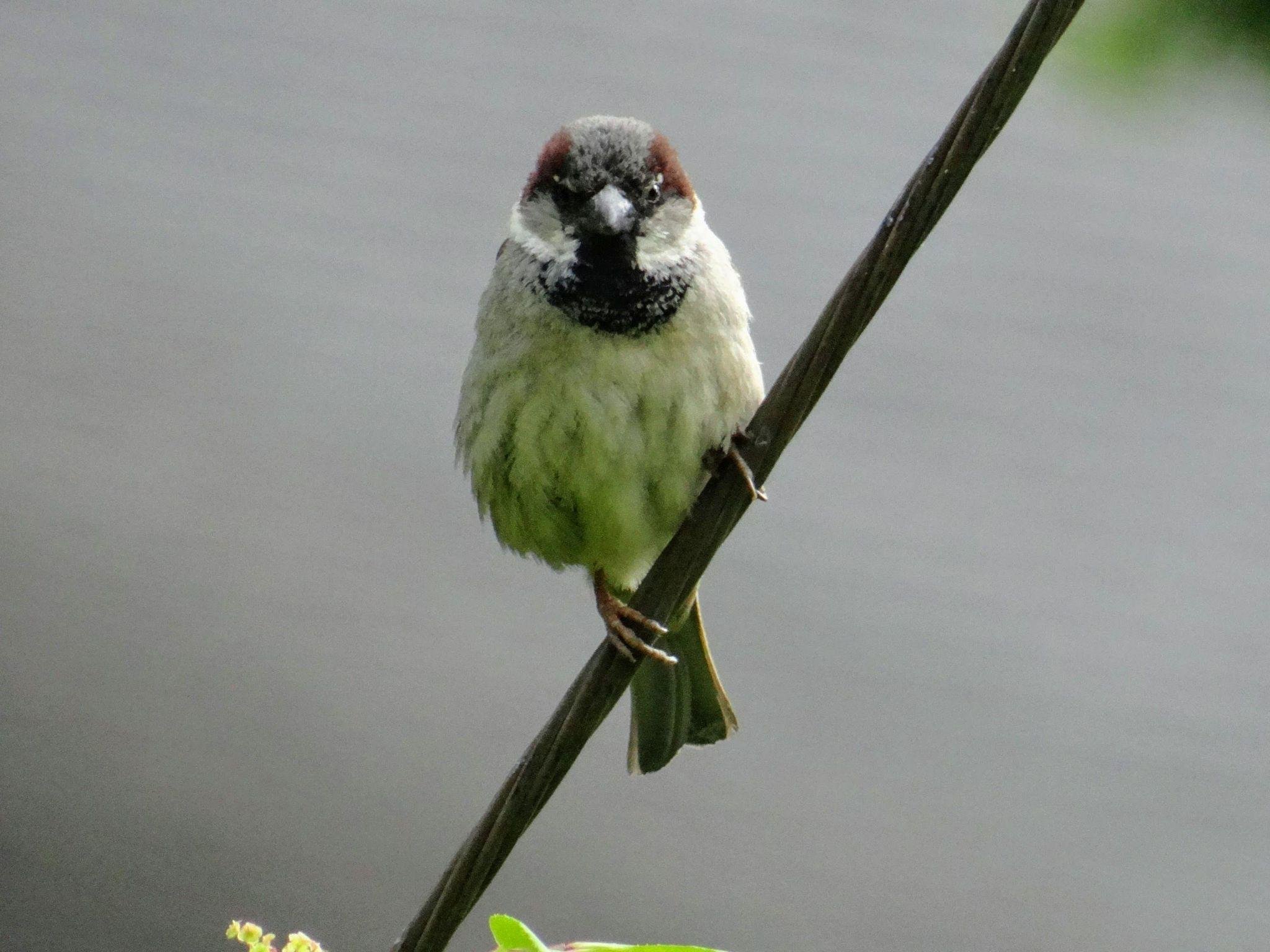Tina Dudley
Luisa and James Gallager birding, Tina Dudley
On a birding weekend at Chincoteague, I had the pleasure of meeting a young birder named James and his mother, Luisa. James has been birding for two years, since he was eight. He is a skilled birder, even correcting seasoned birders on occasion. I enjoyed speaking with his mother, who admitted that James is the birder of the two of them, but she wants him to spend time with “his people.”
Luisa first noticed James’s interest in birds after the family put up a feeder in their yard. James was very curious and wanted to know all about the birds he was seeing. His mother explained; “Sensing his enthusiasm, we took him to a local birding spot. Once he identified his first bird, he was hooked. We identified just three species that day and then went back the next weekend and found ten more.”
James was fascinated. He used the Merlin app to memorize bird calls and his mother signed up for eBird’s rare bird alerts. James shared with me one of his favorite birding memories, “We went to Dyke Marsh to see the rare (for Virginia) Yellow Headed Blackbird and I identified it by ear. It sounded like a chainsaw. When I finally saw the bird it was at the top of a tree singing. I was really excited to see such a rare bird and I wondered how it flew so off-course and what happened to it after it left the marsh.”
This photo of the Yellow Headed Blackbird was actually taken by James through his spotting scope using an iPhone.
Yellow-headed Blackbird, James Gallager
Great Blue Heron, James Gallager
In just two years, James has seen over 130 species of birds. On the trip to Chincoteague, he added 14 new species to that list. He identified the Black-necked Stilt and the Boat-tailed Grackle as his two favorite new birds he saw on the trip. His next birding adventure will be on Cape Cod, when he visits his Grandfather.
Birding has been really good for James - it was a safe activity to do during the pandemic and it also piqued his interest in nature in general. His mother told me that since he began birding, “He is much more aware of the outside world and the impact of humans on the environment. He has a greater appreciation of nature; not only birds, but also insects, plants, animals, and the climate. Birding on Cape Cod with his grandfather increased his love for the ocean. Identifying birds also led him to new interests like photography.”
James Gallager birding, Tina Dudley
Luisa is very supportive of James’ interest in birds. She takes him frequently to parks and birding hotspots like Huntley Meadows, and even got him a nice pair of adult binoculars. (James informed me that he saved up by himself to buy his spotting scope.) The two of them joined the Northern Virginia Bird Club and the Friends of Dyke Marsh and started attending weekly bird walks. I was glad to hear from Luisa that they have found the birding community in Northern Virginia to be very welcoming and helpful.
Luisa’s advice for parents: “The most important thing is to make birding fun for kids and follow their lead. Children who are just starting out do not need fancy equipment or trips. They can identify and watch birds in their own backyard with a simple field guide or an online app. If a child wants to explore birds further, there are a wide range of resources available to help, including the Cornell Lab, e-Bird, Audubon, and local birding organizations. Like any other activity, traveling to birdwatching spots can be time-consuming, but there are tremendous benefits. And being outside in nature is something the whole family can enjoy – birders and non-birders alike.”
House Sparrow, James Gallager
At one point, James asked his mother, “Why are there not more kids who like birding?”
There is a great teen birding club and various camps and programs for birders 13+, but Luisa has not found much for birders around James’s age. It is up to us, as birders, to change that.
So, I have a challenge to all the birders who read this: Please bring a kid out birding with you. Invite your grandchildren, nieces and nephews, or friends’ children. Help us cultivate the next generation of birding enthusiasts. If you feel strongly about this, consider joining our youth education committee so we can work together on programs to engage families and young birders like James.
To any children or teens reading this - I want to share with you James’s advice for new birders: “I would say have fun and don’t feel pressure to find certain birds. I really like my [spotting] scope, it helps me see birds I might not see with my binoculars. I also recommend a reliable field guide; my favorite is Sibley’s Birds East (but you could just use any field guide).”





